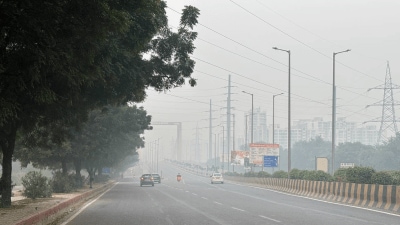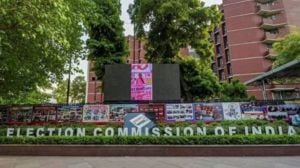When Debenture holders have to protect their own interests
It is a move that is several years' overdue. The Securities and Exchange Board of India (SEBI), having discovered debenture defaults to th...

It is a move that is several years’ overdue. The Securities and Exchange Board of India (SEBI), having discovered debenture defaults to the tune of Rs 373 crore, has reportedly initiated action to find out whether Debenture Trustees are fulfilling their fiduciary functions.
Debenture Trustees are usually banks or financial institutions, who charge a hefty fee for the onerous responsibility of ensuring that a set of physical assets are legally secured against money borrowed from investors through debentures. They act as guardians of the investors’ money and initiate steps to protect it at the first sign of a default, by liquidating the assets if necessary.
In practice, however, Debenture Trustees are also lenders of working capital or term loans to the same companies. They are the same banks and financial institutions who have together run up Non Performing Assets (NPAs) to the tune of a whopping Rs 60,000 crore (only the officially declared figure, the real number may be much larger).
In other words, a set of lenders with a dismal record of looking after their own interests, who have acquiesced with recklessly ambitious diversification of the companies and have consistently thrown good money after bad are also Debenture Trustees. Naturally, getting them to initiate timely action against companies has always been a problem.
In the mid 1980s when seven-year non-convertible debentures were a rage, investors had discovered at the end of the seven years, that many of the DTs had been collecting fees, but had failed to even complete the formality of securing the assets through a legally water-tight trust deed. The concept of a debenture redemption reserve was introduced when investors began to panic and after it was abundantly clear that many companies had no money to redeem debentures.
Since then, retail investors have less interest in non-convertible debt but nothing has changed on the trustees front.
Last Saturday, a newspaper reported a Securities and Exchange Board of India (SEBI) study that debenture defaults had touched Rs 373 crore. The report mentions no names whether of defaulting companies or debenture trustees. The study, which has apparently tabulated debt issued since June 1992, shows that the potential problem could be huge. The total debt issued since then is Rs 51,385 crore through 562 issues, says the report, of which a whopping Rs 27,440 crore is unsecured and, of this Rs 13, 350 crore was raised by the financial institutions.
May be, SEBI should look at the fact that one of these institutions, has been repeatedly allowed to advertise its debt as "safety" instruments. A crackdown should first involve the correction of such misleading advertising. The same institutions role as a debenture trustee and its record of meeting its fiduciary obligations also bears examination.
According to SEBI, secured debt issued since 1992 is Rs 23,945 crore. The defaults of Rs 373 crore seem small in comparison to the overall issue, but it is a warning of more to come.
CRISIL, India’s leading rating agency, warned a couple of months ago that Trustees, to various large debt issues, with structured obligations were also not performing their duties leading to "deterioration in the strength of the structure". It warned that this could well result in a downward revision of ratings and loss of investors interest. It said that the primary and statutory duty of Trustees is the protection of investor interests and warned investors to watch out for their own interests.
So far, only one investor has been following for years, what CRISIL has recently advised. Infrastructure Leasing and Financial Services (IL&FS) has had to move court at least three times to force the Debenture Trustee (incidentally, against ICICI every time to initiate steps to protect its investment). And this itself should show investors and SEBI how tough it is going to be.
IL&FS first moved court to protect its investment in the Chennai headquartered Best & Crompton a few years ago. The case was filed against the DT to force it to perform its fiduciary duties. Fortunately, Best & Crompton was taken over and most investors got a substantial portion of their money.
The next battle involved Baroda Rayon. After a protracted legal tussle and an out of court settlement, IL&FS ensured that its own money was secured against two properties owned by the company at Hoechst House in south Mumbai. The same battle was repeated in the case of Mafatlal Industries. Again, after an exchange of legal notices followed by an understanding which led to IL&FS again, separately securing its own money against real estate owned by Mafatlal Industries.
IL&FS has been very smart in protecting its interests, but what is good for IL&FS is not good for other investors and certainly not retail ones. Large investors are taking a cue from IL&FS’s extremely successful record of protecting its rights. In fact, ICICI itself has learnt the trick and has protected its interests in the Arvind Mills case through the sale and lease back of property – a move which has angered other institutional lenders to Arvind.
If SEBI is seriously on the trial of debenture defaults and the role of Debenture Trustees, then it should put an end to the practice of institutions protecting their own individual interests through legal action. This is bad for market confidence and bad for the future of debt instruments. If Debenture Trustees fail in their fiduciary duties then it defeats the entire purpose of issuing these allegedly secure instruments.
And any solution has to be equally applicable to all investors, irrespective of whether they are institution or individuals.
SEBI also needs to look at whether DTs deliberately ignore signs of financial trouble and a potential default in order to keep their own NPA levels down. After all, banks and institutions can not show a company’s term loans as a standard accounts even while they initiate recovery proceedings on behalf of debenture holders. If there is a conflict of interest: real or potential, SEBI ought to find a way to resolve it. The size of outstanding secured debt indicates that the problem of debenture defaults is bound to increase. SEBI also needs to follow up its study by initiating action against all Debenture Trustees who fail in their fiduciary duties.
— Author’s email: suchetadalal@yahoo.com



- 01
- 02
- 03
- 04
- 05




























